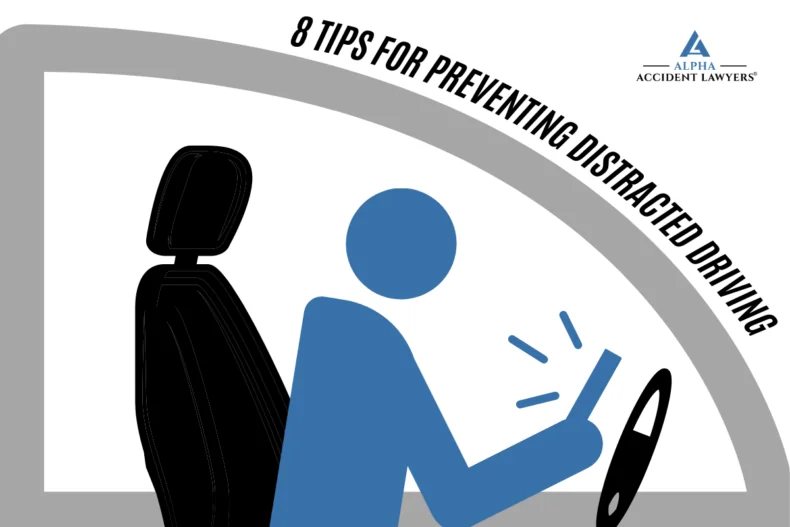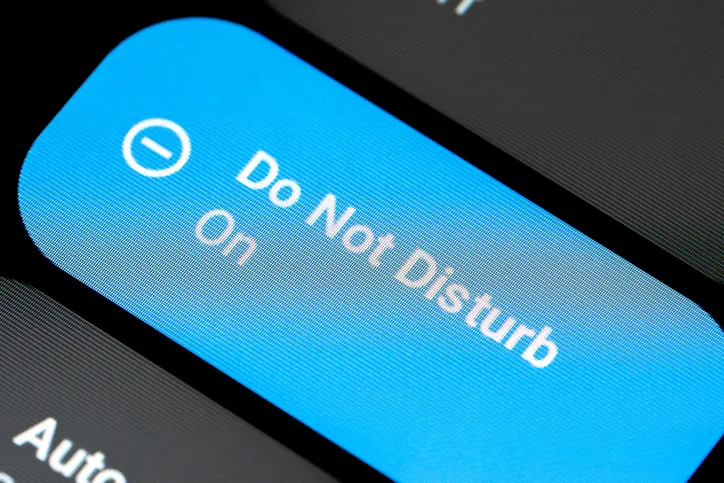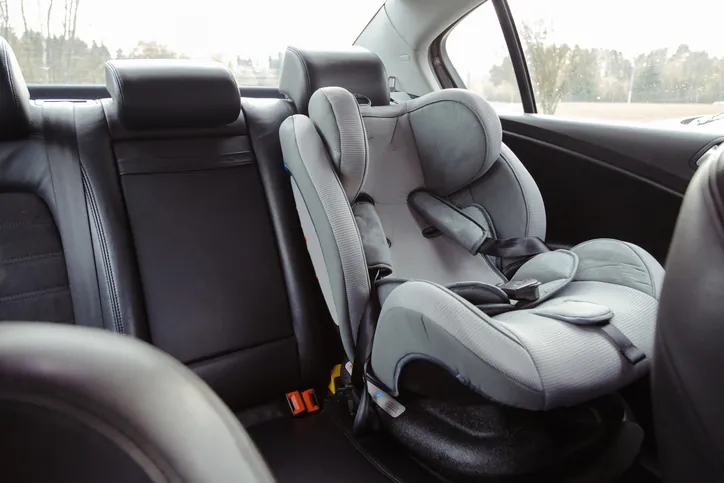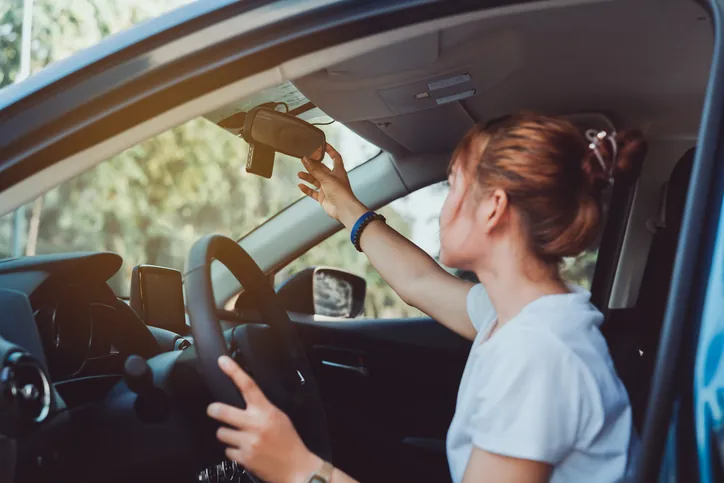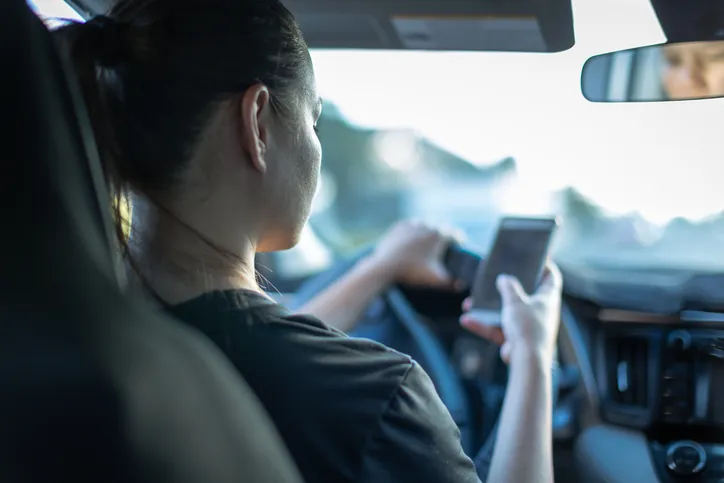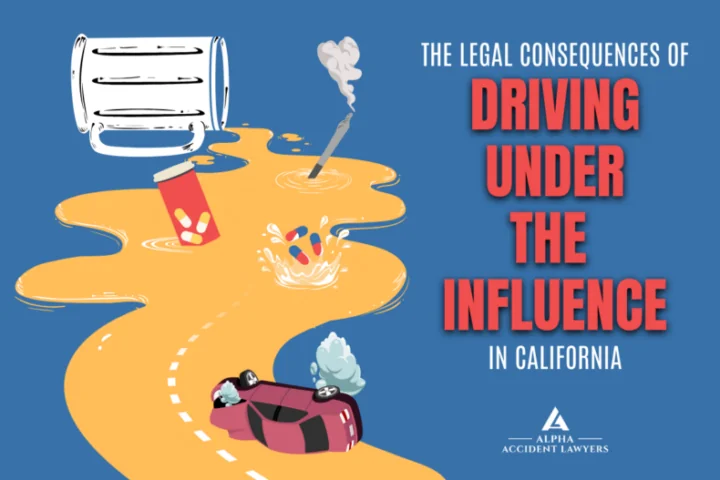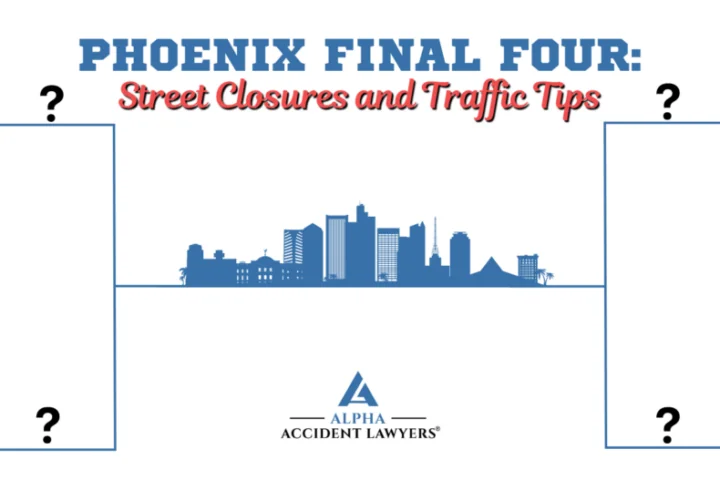What is Distracted Driving?
Distracted driving increases the risk of getting in a crash by three times. Engaging in any activity that takes your eyes off the road, hands off the wheel, or mind off driving is distracted driving. This can include texting, talking on the phone, conversing with a passenger, grooming, using the radio or GPS, and eating or drinking.
According to the National Highway Traffic Safety Administration (NHTSA), texting behind the wheel takes a driver’s eyes off the road for an average of 5 seconds, equivalent to driving the span of a football field at 55 mph without looking.
If you sustained injuries in an accident caused by a distracted driver, it’s crucial to consult with an experienced car accident attorney who can help you recover fair compensation for your losses. Read on for tips on how to prevent distracted driving and stay safe on the road.
Top 8 Ways to Prevent Distracted Driving
1. Plan your route before you go
One effective way to help prevent distracted driving is to plan your route before hitting the road. Use a GPS navigation system or familiarize yourself with the directions in advance. This reduces the need to glance at maps or enter addresses while driving. You can also enable the voice feature so you don’t have to look at the screen for each turn.
2. Stow your cell phone and put it on “Do Not Disturb” mode
Cell phones are one of the leading sources of distraction for drivers. In a survey conducted by AAA, nearly 93% of drivers believe texting or emailing while driving is dangerous. However, 37% of drivers revealed that they had read a text or email while driving, in the month prior.
In almost every state, it is illegal to text, talk on a handheld phone, or use a mobile device while driving. Most distracted driving laws ban hand-held cell phone use while driving but allow hands-free devices. However, hands-free devices are still distracting. To help minimize temptation, stow your phone in a designated spot where it’s out of reach and sight while driving. Additionally, activate the “Do Not Disturb” mode to silence notifications and phone calls, so you can avoid distractions and concentrate on driving.
3. Eat meals or snacks ahead of time, not while driving
Eating or drinking while driving can take your hands off the wheel and divert your attention from the road. It’s best to plan your meals or snacks in advance and consume them before or after driving. If your passengers want to eat a snack while on the road, avoid messy foods that could spill and cause a distraction. If necessary, you can make a pit stop at a safe location.
4. Secure small children and pets with proper safety gear
Children and pets can be unpredictable passengers that could divert your attention while driving, especially if they are not properly secured. Ensure their safety by using appropriate safety gear, such as car seats, booster seats, seat belts, or pet carriers. Make sure they are securely fastened before starting your journey. Seat belts save nearly 15,000 lives each year. Always ensure you and your family are properly wearing a seat belt.
5. Tuck away loose items that could move around in the car
Loose items in the car can become a safety hazard in the event of a sudden stop or maneuver. Before driving, secure any loose objects, such as groceries, bags, gear, or equipment, in the trunk or storage compartments. This can prevent them from shifting around and distracting you while you’re driving.
Additionally, loose items like empty water bottles, tennis balls, or other objects can move from under the seat and cause a pedal jam which could potentially lead to an accident.
6. Adjust car settings before you drive
If you need to adjust your car’s settings, such as mirrors, seats, climate control, and entertainment systems, take a few moments to do this before you hit the road. In addition, check your car’s fuel level, and look for warning lights on the dashboard. Ensure you have enough gas to reach your destination or locate the nearest gas station. If you see warning lights, ensure you check your driver’s manual before driving.
7. Ensure you get enough sleep before driving
Drowsy driving has similar effects to driving under the influence of alcohol. Fatigue can impair a driver’s ability to focus, react quickly, control their vehicle, and make judgments while driving. Drowsy-driving crashes are often underreported, however, the AAA Foundation for Traffic Safety estimated that 328,000 drowsy-driving crashes occur each year. According to the National Sleep Foundation, an estimated 6,400 people die annually in crashes involving a drowsy driver.
Ensure you are well-rested before getting behind the wheel, especially for long trips. The Centers for Disease Control and Prevention (CDC) recommends that adults need 7 hours and teens need at least 8 hours of sleep before driving. If you feel drowsy or fatigued during the drive, pull over in a safe location and rest until you’re alert enough to continue driving safely.
8. If other activities demand your attention, safely pull over to the right shoulder
Sometimes, distractions arise unexpectedly while driving, such as attending to your child or addressing a sudden issue with your vehicle. If you need to focus on something other than driving, safely pull over to the right shoulder or into a designated parking area.
Distracted Driving Accident Statistics
According to the National Highway Traffic Safety Administration (NHTSA), there were 3,308 lives lost in distracted driving crashes in 2022.
According to 2021 data provided by the NHTSA, cell phone use or texting while driving was a factor in:
- 377 fatal distracted driving accidents that reported cell phone use as a distraction
- 20,015 distracted-affected injury crashes
- 8% of non-fatal distracted driving crashes, or 44,518 accidents in total
Which Type of Drivers Are More Susceptible to Distracted Driving?
Inexperienced drivers, particularly teenagers, and young adults are more likely to engage in distracted driving behaviors. It’s important for parents to address distracted driving dangers with their teens and inform them of the responsibilities involved in driving.
- Younger drivers between the ages of 15-20 have the highest proportion of fatal crashes involving distraction
- 7% percent of all teen motor vehicle crash fatalities in 2020 involved distracted driving
- In 2020, 3,142 people were killed in distracted driving crashes. Teens between 15-19 years old made up 6% of this total.
We Represent Auto Accident Victims
If you or a loved one has been involved in an auto accident caused by a distracted driver, you may be able to pursue compensation for your injuries, medical expenses, and other damages. At Alpha Accident Lawyers, we specialize in representing auto accident victims and have recovered millions of dollars in verdicts and settlements for our clients.
Our experienced team of personal injury attorneys understands the complexities of distracted driving cases and will fight tirelessly to pursue the justice and compensation you deserve. Call us for a free consultation to discuss your case and explore your legal options.
